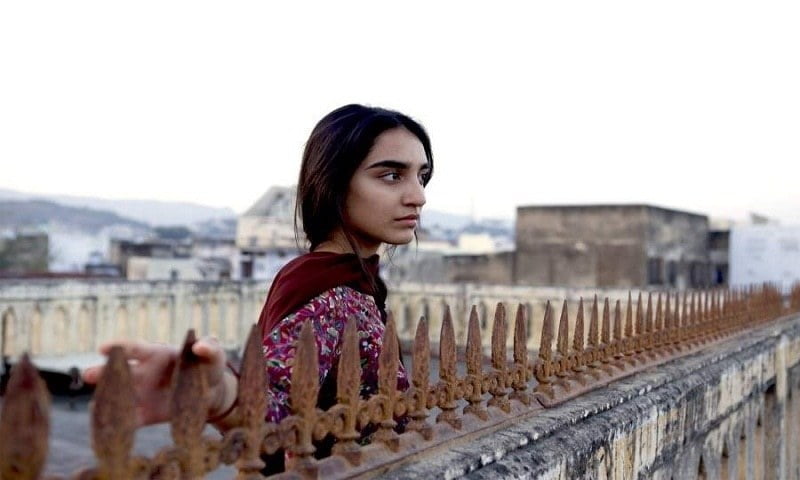Based in both Norway and Pakistan, the film What Will People Say (Norwegian: Hva vil folk si), directed by Iram Haq, follows the story of a Norwegian-Pakistani family. Mirza and Najma move to Norway to secure a better life for themselves and their children. Nisha, their middle child, is the main focus of the film.
Nisha is an effervescent and smart teenager, with a large group of friends and a secret boyfriend. Nisha’s pedestal is destroyed when her father discovers the boyfriend in her room. He then forcefully takes her to Islamabad and leaves her with his sister, thinking she will be transformed when he comes back for her. The events that follow serve to heighten the prevalent generational conflict and highlights the ways in which families control women.
The beginning of the film establishes 16-year-old Nisha straddling a fine line between a dutiful daughter and teenager taken with Western culture. Outside home, she hangs out with her friends, experiments with alcohol and weed, and dances the night away at clubs. She always manages to make it home, before her father’s nightly check.
Her mother’s entanglement with the age-old adage “log kya kahenge”, feeds into the worry she has about the image of the family because of Nisha’s seamless assimilation into Western society. However, because Nisha is the apple of her father’s eye, the modicum of freedom she is given is not curbed.
Nisha’s status as her father’s favourite child is contingent upon her accordance with traditional ideas of morality.
One night, in a bout of bravery, she sneaks her boyfriend into her room. They sit side by side on her bed, talking to one-another. Her father, walking in on this innocent display, flies into a fit of rage and beats the boy black and blue. He also accuses his daughter of being “loose”, while keeping her pinned to the wall in a chokehold.
This will not be the only instance in which he expresses a need to kill his daughter in order to protect the family’s image. Nisha’s status as her father’s favourite child is contingent upon her accordance with traditional ideas of morality, and now that she has broken the rules, her father can no longer trust and protect her as he did before. She is saved by the police, who were notified of a scuffle by a neighbour, and put into a dormitory by Child Welfare Services.
The news of this incident spreads like wildfire among the local Pakistani community. They advise the family to make an example of Nisha by giving her a punishment so harsh that none of their children would ever commit such an act. Thus, the pervasiveness of society in the functioning of the family is emphasised. As a result, Nisha is lured out of the dormitory by her father and brother with the hope of a reconciliation and she is taken to Islamabad.
Also Read: The Breadwinner: A Fully Fleshed Insight Into People Under Taliban Rule
After an initial resistance to the new environment, Nisha settles into life in Islamabad. She helps in the running of the household by buying vegetables and drying the clothes. Nisha also develops a close relationship with her cousins, Amir and Salima. A spark of attraction between Amir and Nisha leads to a midnight dalliance, during which they are caught by the police.
The police force them to strip and film the two teenagers in the act, threatening the family with the release of the video should they not receive a 20,000-rupee bribe. Believing Nisha to be a kind of poison that has polluted her son, the aunt forces her brother to take Nisha back to Norway. Once again society has infiltrated the family, however in the more menacing form of the State.
On the way to the Islamabad airport, Mirza asks the taxi driver to stop in the middle of nowhere for a lunch break. He carries the food and leads his daughter to a small clearing at the edge of a cliff. He looks her in the eye and pleads for her to jump for the peace of the family.
other women in the film have some kind of agency because they operate within an established tradition.
Nisha begs for forgiveness while shaking her head fervently. A frustrated Mirza walks up to Nisha, grabs her by the shoulders, and yells at her to jump to atone for the pain she has caused. He forces her right to the edge but cannot push her over. The two make their way back to the taxi in silence.
Mirza’s violence against his daughter is the product of a rigid, socially constructed honour-shame binary; wherein the honour of the family is hinged upon women embodying traditional roles and conforming to an established system of morality. Thus, up until her fleeing from home, Nisha is blamed for bringing shame upon her family.
It is important to note that the other women in the film, Nisha’s mother and aunt, have some kind of agency because they operate within an established tradition. Furthermore, people only seem to intervene in the affairs of the family where Nisha is involved, while other characters seem to escape from the same societal scrutiny. In my opinion, What Will People Say, is a stark critique of how the aforementioned question is used as a tool by families to control women.
Also Read: Miss Representation: Should We Choose The Sati-Savitri Or The Vamp?
Featured Image Credit: Hip In Pakistan
About the author(s)
Currently in between semi and full adulthood. Writing helps me work out all the complex thoughts I have floating around in my brain.




